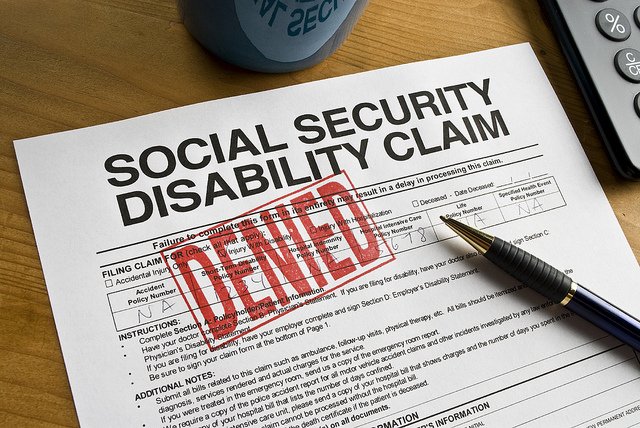Most individuals understand the necessity of getting out and working for a living, but every so often, a person will suffer an injury that prevents them from doing this. This is a common occurrence that can prove financially ruinous, but when an injury turns into a long-term disability, the consequences can be especially disastrous. Luckily, an individual has the ability to file for disability benefits, but this isn’t always a guarantee that they’ll receive them. This is why every disability applicant should know the appropriate steps to take after a denial of benefits. Don’t get Discouraged
The biggest mistake that people often make after being denied disability benefits is simply giving up. The belief that a denial is a final decision is pervasive, but it is completely inaccurate. In fact, more than 70 percent of all disability applicants are denied when they first apply for benefits. The majority of these individuals give up, but for those who continue to fight for the benefits they deserve, 60 to 70 percent are granted them at their hearing. The moral of the story: never give up.Find out the Technical IssuesThe Social Security Administration (SSA) doesn’t just deny benefits on a whim. There’s no doubt that they deny plenty of applicants, but they always have a very specific reason behind these denials. An individual must find out the exact issue that caused their denial if they want a chance at successfully fighting it. A person should understand going in, though, that there are a variety of reasons for a denial.
- Applicant’s income is too high
- Insufficient medical evidence
- Refusal to cooperate with investigation
- Disability won’t be long-term
The aforementioned list is in no way all-inclusive, but it does represent some of the most common reasons for denial. Once an individual knows why they were denied, it’s up to them to find the appropriate evidence that will assist in their being granted benefits.
Speak with an Attorney
One of the best steps that a person can take after being denied disability is to speak with an attorney. Many individuals believe they can handle an appeal to denied benefits on their own, but in reality, if a person had all of the evidence they needed in the first place, they likely wouldn’t be in the position where they had to file an appeal. An attorney with extensive experience in this area, however, can pinpoint exactly why an application was denied and the appropriate way of going about remedying the situation.
File Appeal
Filing an appeal is the single most important aspect of fighting against a disability denial. Unless the denial is appealed, a person has zero chance of receiving financial help. It’s also imperative for them to file this appeal in a timely manner. This is because there is a set deadline on how long a person has to file their appeal. Ensuring that all evidence that can prove eligibility for benefits is gathered at this point is also essential since a hearing will soon be approaching. Luckily, a person’s attorney can gather most, if not all, of the information needed for a successful appeal.
There’s no doubt that successfully filing for disability on one’s own can be a difficult process, but it is by no means impossible. The SSA has to deal with fraudulent claims on a daily basis, and unfortunately, their attempts to prevent this often cause innocent individuals who really are eligible for benefits to be denied. Luckily, a denial is not the end of a disability claim story. With the appropriate evidence and good legal representation, an individual is far more likely to be granted benefits.
Featured image source www.flickr.com/photos/sunworldpictures/8049571185/sizes/z/in/photostream/



